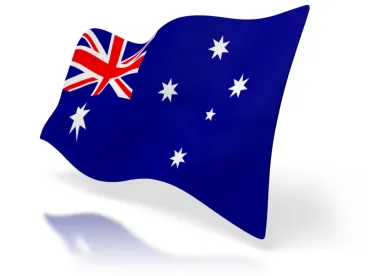This information is accurate as of 10.00 am Monday 4 May 2020 and is subject to change as this situation evolves.
With the end of the reporting period for many Australian reporting entities under The Modern Slavery Act 2018 (Cth) (MSA) approaching, the federal government recognises the unprecedented disruptions caused by the COVID-19 pandemic will significantly impede the ability of many reporting entities to assess, mitigate and report in a timely manner on the risks of modern slavery in their supply chains or the changes resulting from the pandemic.
This alert provides an update on extensions for modern slavery statements, guidance issued by the federal government to address these challenges, what reporting entities can do next, and how you can effectively assess the impact of COVID-19 on your supply chain.
Update
Statement Extension
Deadlines for reporting entities (operating on reporting periods ending on or before 30 June 2020) to lodge modern slavery statements are extended by three months. The table below summarises new reporting deadlines:
|
Reporting period |
Original deadline |
New, extended deadline |
|
1 April 2019 – 31 March 2020 (Foreign Financial Year) |
30 September 2020 |
31 December 2020 |
|
1 July 2019 – 30 June 2020 |
31 December 2020 |
31 March 2021 |
|
Reporting periods ending after 30 June 2020 |
The six month deadline for reporting periods ending after 30 June 2020 remains unchanged |
|
New Guidance
Amidst the ongoing disruptions to supply chains globally, the Modern Slavery Business Engagement Unit (Unit) in the Australian Border Force (a division of the Department of Home Affairs) has provided new guidelines to assist companies satisfy their reporting obligations under the Modern Slavery Act 2018.
The Unit has made it clear that while the pandemic has fundamental effects on supply chains, companies are still expected to take measures to actively mitigate the risks of modern slavery occurring in such supply chains.
Entities are encouraged to consider how COVID-19 may increase the vulnerability of workers in their global supply chains to modern slavery given factory shutdowns, order cancellations, workforce reductions and other supply chain disruptions as the economic effects of the pandemic reverberate throughout the world.
Loss of income (and the fear of such loss), low awareness of workplace rights, pressure to work overtime to cover capacity gaps and the inability to safely return to home countries are reasons why some workers may be more vulnerable than others.
Support for Workers in Your Supply Chains
The Unit has recommended that reporting entities proactively engage with suppliers on COVID-19 risks and supporting vulnerable workers. Support may involve:
- paying for completed work and extending orders over time to help ensure ongoing cash-flow for suppliers
- avoiding varying contracts unreasonably or seeking discounts from suppliers
- asking suppliers for information on steps they have taken to protect their workers from COVID-19, such as providing workers with protective equipment, providing sick leave or carer's leave, and increasing cleaning in factories and buildings to minimise risk of infection
- exploring ways they can work with their supplier to support affected workers, such as guaranteeing workers’ wages or leave conditions for set periods
- asking suppliers whether new or changed orders will require them to take on additional workers or require additional overtime from current workers'
- continuing existing supplier due diligence and remediation processes and adjusting these processes where necessary to ensure risks linked to evolving supply chains and changing workforce structures are identified and addressed.
Addressing COVID-19 Related Disruptions in Modern Slavery Statements
Whilst the above actions may be included in a reporting entity's modern slavery statement, the Unit has also recognised that COVID-19 may adversely affect a reporting entity's ability to address all of the mandatory reporting criteria set out in the Modern Slavery Act 2018. For example, entities may:
- be unable to undertake planned activities to address modern slavery risks such as face-to-face training and supplier engagement activities
- have limited capacity to prepare statements (including due to staffing changes), or
- have experienced significant changes to their supply chains.
These reasons may be outlined in modern slavery statements. The Unit also encourages reporting entities to include information in their modern slavery statements about relevant activities implemented or resumed between the end of their reporting periods and the deadline for submitting their statements to reflect such delays and limitations.
Making Joint statements for Reporting Entities with Different Reporting Periods
Consistent with recognition of COVID-19 related delays, the Unit has also provided guidance on the timing of joint statements.
An entity (submitting entity) can submit a single modern slavery statement on behalf of a group of entities (each a reporting entity) even if the entities have different reporting periods. To be able to submit a single report, the report must be prepared in consultation with each reporting entity.
The Unit has noted that if the submitting entity and one or more of the reporting entities covered by the statement do not share a common reporting period, the entities involved may select a single reporting period to be used for the purposes of the joint statement. This single reporting period does not have to align with an existing reporting period used by any of the entities. However, it must not be:
- later than the latest reporting period for any of the reporting entities covered by the statement, or
- the operating financial year of the submitting entity if this entity is not a reporting entity.
Interestingly, this guidance is not yet reflected in the Modern Slavery Act 2018 or the initial formal Guidance for Reporting Entities issued in September 2019. We will watch this anomaly closely given the potential for non-compliance with this Act if this option is exercised.
Next Steps for Reporting Entities
Due to the uncertain nature and effect of COVID-19 upon business' ability to manage the risk of modern slavery, reporting entities should:
- assess the status of existing projects implemented to minimise the risk of modern slavery
- determine if any future projects can be implemented in a modified form
- proactively adopt measures to more effectively respond to COVID-19 associated risks of modern slavery
- consider whether submitting a joint single modern slavery statement is appropriate for the organisation and the appropriate reporting period to be used.
Further Assistance: Assessing the Impact of COVID-19 Disruption
Using the latest proprietary technology of third party providers, we can assist businesses to assess the impact of the COVID-19 disruption in their supply chain and identify proper mitigating actions for any increased risks of modern slavery identified.
Upon mapping the supply chain with the spend data of a business, we will analyse a report identifying the industries and countries in the entity's supply chain that have the greatest exposure to COVID-19 disruption.
Once those industries and countries have been identified, the reporting entity can ensure that appropriate steps are taken with suppliers that have been identified in those industries and countries to ensure that vulnerable workers are protected from the impact of COVID-19 in line with the Unit's guidance.




 />i
/>i

